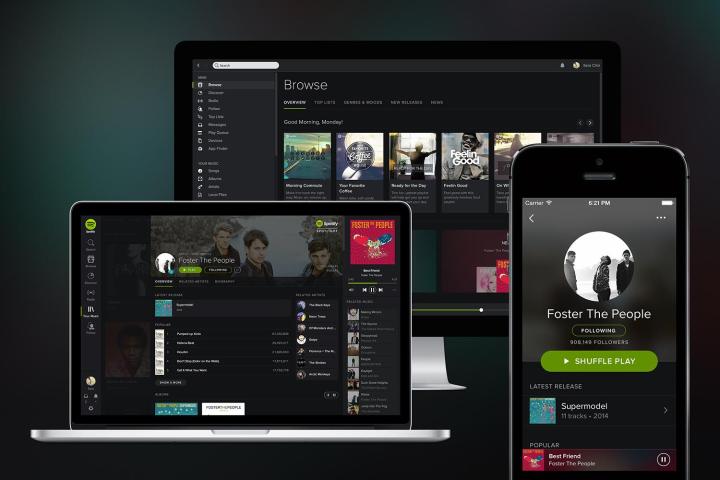
No matter which platform you use, if you’re a Spotify listener who’s opted for the free version rather than shelling out for a monthly subscription, then you might have been exposed to some malware due to a recent incident. Spotify moved quickly to fix things up, according to Engadget, but whether you’re listening on a Mac, a Windows machine, or a Linux box, there’s a chance that you might have seen an infected ad or two pop up.
Spotify admitted the problem in a statement to Engadget, while downplaying the number of affected users affected and promising to keep an eye on things. “A small number of users have experienced a problem with questionable website pop ups in their default browsers as a result of an isolated issue with an ad on our free tier,” Spotify said. “We have now identified the source of the problem and have shut it down. We will continue to monitor the situation.”
This isn’t the first time that Spotify served up malicious content in its advertising, with a similar incident occurring in 2011. Spotify isn’t alone, as any number of other providers have also been subjected to the spread of malware through advertising, otherwise known as “malvertising.”
The bottom line is this — if you use a free service that’s funded by advertising, then you run the risk of exposure. The safest bet is to make sure that your devices are protected by some kind of antivirus and anti-malware software. You can learn more about some good options in our recent free antivirus roundup, and if you want to avoid ad-based malware in at least one service, then you can always sign up for a paid Spotify subscription at $9.99 a month.
Editors' Recommendations
- You’re going to hate the latest change to Windows 11
- The best GPUs if you’re upgrading from a GTX 1650
- If you use this free password manager, your passwords might be at risk
- The best VR headset might be one you’ve never heard of
- Hackers can now sneak malware into the GIFs you share


